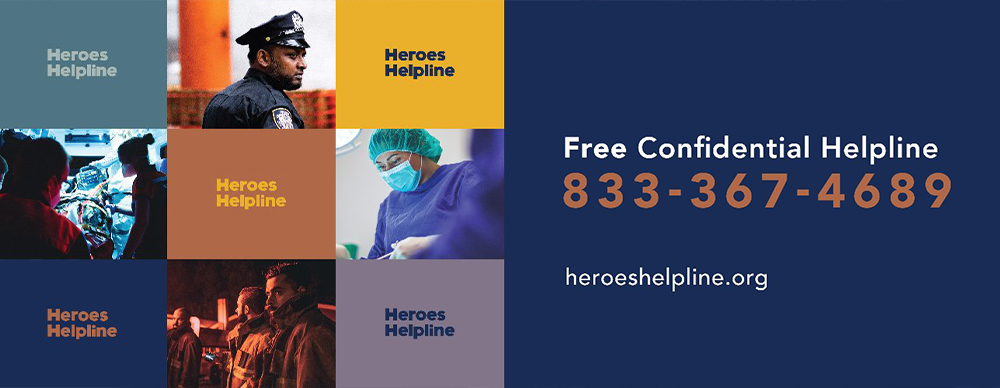
The Center for Behavioral Emergency and Addiction Research at the UTHealth School of Biomedical Informatics oversees a multidisciplinary team of scientists and clinicians that utilize data science methodologies to improve health systems and population science through prevention, policy, and treatment programs targeting vulnerable populations, especially those that engage with hospital emergency departments and first responders.
The Center’s First Responders Educational Campaign is a free, research-based learning service implemented to provide all first responders across Texas with information regarding substance use and mental health disorders. Our materials cover mental health issues such as depression, anxiety, PTSD, compassion fatigue, and substance use issues including alcoholic use and opioid use disorders, among others.
Our free, self-paced, online training provides first responders, as well as interested healthcare workers and members of the public, with the tools and information necessary to recognize and address symptoms of substance use and mental health disorders in themselves or others. To enroll, please visit http://go.uth.edu/heroestraining
Additionally, the Center also operates the 24/7 Heroes Helpline, which provides free, confidential telephone support and referral service that affords all first responders and healthcare workers in Texas the opportunity to seek treatment without fear of judgment, stigma or occupational threats. To learn more, please visit Heroes Helpline.
This training module is designed to raise awareness of the importance of recognizing and treating problematic drug and alcohol use (or, substance use) within the first responder workforce.
The goal of this training is to improve experiences in emergency care for people living with chronic infectious disease, including Hepatitis B and C Virus and Human Immunodeficiency Virus, more commonly called HBV, HCV, and HIV.
This training module allows enrollees to recognize and cope with symptoms of acute and chronic anxiety, chronic stress, and Post-Traumatic Stress Disorder. Explore the risk factors, causes, experiences, and mechanisms involved in episodes of disordered anxiety, chronic stress, and post-traumatic stress.
This training module you will learn about typical psychological responses to disaster and how these are manifested during the COVID-19 pandemic among all members of society, and with special attention to the effects on first responders and healthcare workers. You will learn to identify and address potential stressors and develop tools to build your resilience throughout the pandemic.
Upon course completion, learners will be able to: Understand the disease of addiction; the goals of medication-assisted recovery; understand the different medications to treat opioid use disorder; highlight current barriers to treatment and medication access, and understand best practices surrounding medication-assisted therapy.
In this course, learners will gain an understanding of Substance Use Disorder and Opioid Use Disorder. This includes learning what opioids are, how they are used medically, what alternatives are available for opioids. At the end of the course learners will be able to demonstrate the difference between addiction (use disorder), tolerance, and dependence; recount the three waves of the opioid crisis and their origins; recognize how opioid receptors function; and care for someone who has overdosed.
The following training will enable First Responders to develop a more in depth understanding of Opioid Use Disorder and the effects of Opioids, Opioid Overdose, and Opioid Overdose reversal drugs on the brain.
Our goal in this module is to help you understand the current trends and impact of the opioid crisis in our youth, how it happens and what to look for. By the end of the module, you will be able to recognize the risk factors, signs, and symptoms of opioid use disorder and how to create a safe space to educate our youth on opioid misuse through the development of prevention programs and provide you with resources for further information.
This course is designed to provide the Leaders in first responder and healthcare agencies with the tools to support their teams by providing practical tools to normalize talking about substance use and mental health use issues.
For additional information, Please contact the Center for Health Systems Analytics team at [email protected] or 713-500-3599.